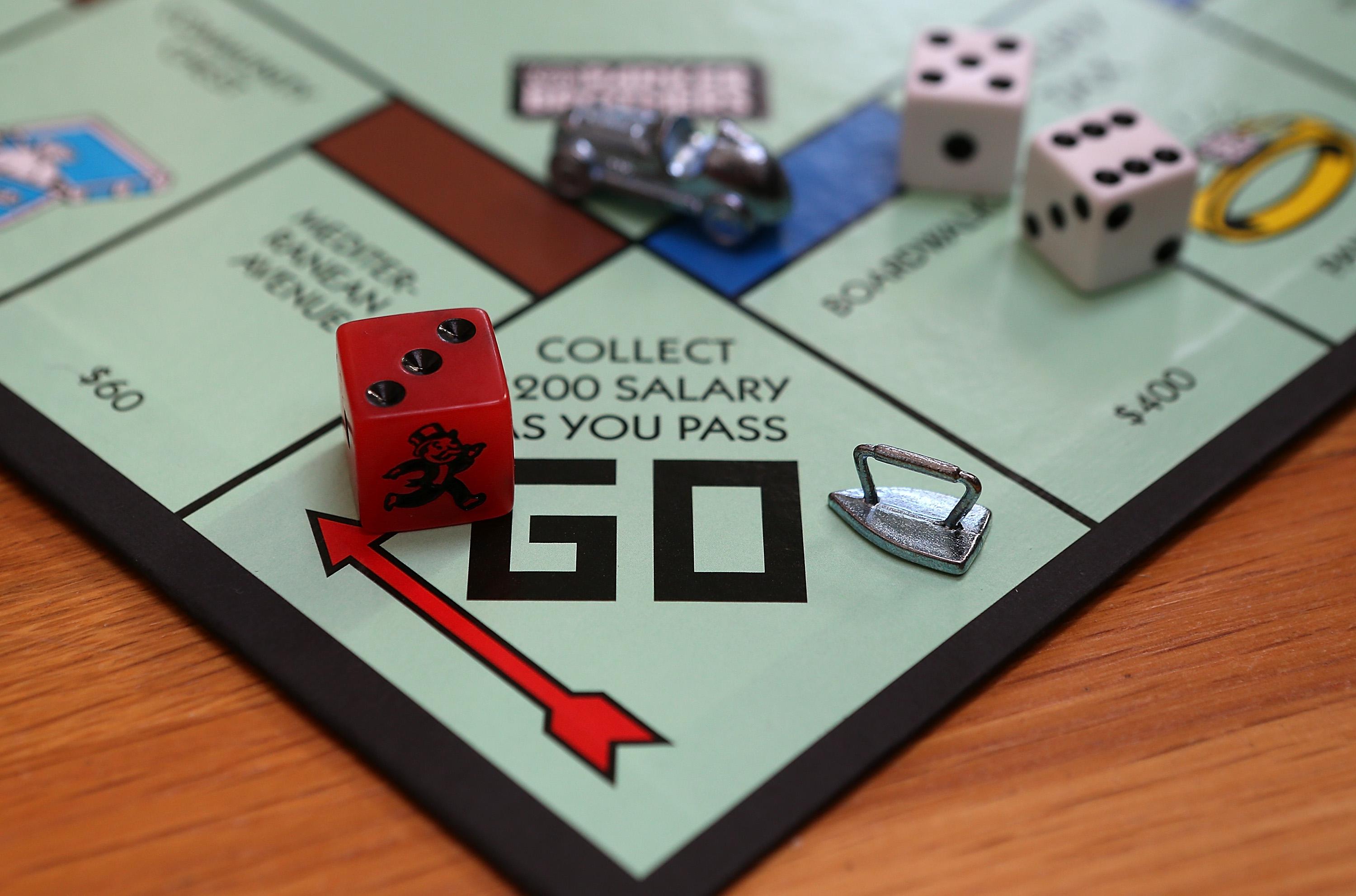It’s shaping up to be a good month for Hasbro Inc.’s publicity department, with an assist from the New York Times. A couple of weeks ago, the paper of record “broke” the news that the toy company would hold a contest via Facebook to add one word to Scrabble’s official dictionary. On Saturday, the Times front-paged a story about toy weaponry for girls that prominently featured Hasbro’s “Nerf Rebelle Heartbreaker Exclusive Golden Edge Bow.” Then on Tuesday, the Times delivered another scoop: Hasbro will hold a second Facebook event, this one to add favorite “house rules” to Monopoly.
If you disregard the Katniss-inspired-arms trend story, you have a company doing whatever it can to draw attention to old familiar brands. In the case of Monopoly and Scrabble, that’s usually meant spinoff products or special editions. Monopoly has rolled out dozens of them, based on everything from American Chopper to Berkshire Hathaway to FedEx, Juicy Couture, Notre Dame, and Star Wars (five of those). Scrabble has trotted out Disney and golf and Red Sox versions, to name just a few, plus pricey onyx and glass boards.
But that’s a limited approach, requiring consumers to love both the original game and whatever place, thing, or licensee is being hawked on the new box. Hasbro’s social-media strategy is proving much savvier. Because of the universality of games like Scrabble and Monopoly, people have strong opinions about them even if they don’t play very often. Letting the public participate in a “contest” around a brand offers a feeling of ownership—and it can generate tons of press.
That happened last year when Hasbro let the public select a new Monopoly token—a blinged-out cat replaced the working-class iron—through a vote on the company’s Facebook page. And it’s happening now with the Scrabble word contest, which has drawn more than 3,200 comments on Facebook. As I argued on Slate earlier this month, the contest makes sense. Living-room Scrabble players can suggest kwyjibo over and over while more serious players can back words like feedings and nucleic that have been mysterious omissions. Lexicographers are overseeing the process to ensure only legit words on their way to inclusion in Merriam-Webster’s college dictionary make the final round of voting, thus preserving the integrity of the game’s word source.
Does this sort of marketing work? Sales of Hasbro games increased every quarter last year, which the company attributed largely to Monopoly. The Scrabble contest is designed to sell the new, fifth edition of the Official Scrabble Players Dictionary, which the company licenses, as well as Scrabble boards and apps.
The latest Monopoly social-media blitz, however, is more transparent. Hasbro has picked 10 “house rules”—landing on “Free Parking” gets the cash in the middle of board; you get an extra payout for rolling snake eyes; you get double payment for landing on “Go,” etc.—that fans can debate one at a time on Facebook. Five will be used in another one of those special editions and included “as an addendum to the official rules in a Monopoly game guide,” according to the Times story by Mary Pilon, whose history of the game, The Monopolists, is to be published next year.
The risk with this sort of gimmick is alienating traditionalists while looking like you’re trying to trick casual players into thinking something important is going on. Hasbro avoided the former by reassuring the public that “the official Monopoly rules will not change.” But it’s going to have to do a better job on the latter. “[F]ans who love playing with ‘house rules’ will now have the opportunity to play them in their game,” the company said.
Um, fans who love playing with house rules can do so whenever they want because they’re by definition house rules. You don’t need a new rulebook—or a new board—to do that.
